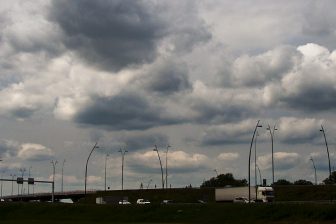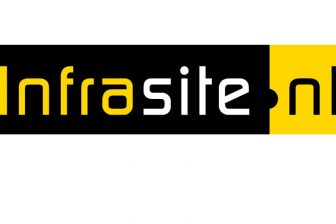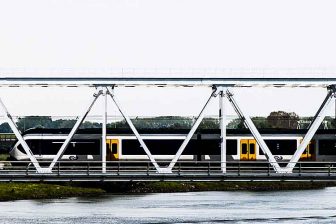UIC presented the railway arguments for global warming
Transport Summit “International Transport Forum” in Leipzig
From 28 to 30 May, the International Union of Railways (UIC) participated in Leipzig at the International Transport Forum, the new structure born under the OECD (Organisation for Economic Co-operation and Development) umbrella, chaired this year by the Finnish Presidency. The International Transport Forum as part of the OECD is >the successor organisation of the European Conference of Ministers of Transport (ECMT), founded in 1953. The Forum entitled “Transport and Energy: the challenges of Climate Change” gave the opportunity to discuss the issue of climate change and the challenge posed by global warming for transport.
Around 600 stakeholders from 51 countries involved in the transport field, as well as representatives from politics, industry, science and civil industry, attended this key global platform “to build a global consensus on challenges facing the sector”, stated Jack Short, ITF Secretary General.
This three day Forum dealt with central questions such as how the transport sector can improve energy efficiency and achieve low carbon transport for the future. The Forum was structured around a series of workshops and high level panel discussions providing opportunities for research, industry and civil society leaders to meet and interact with Ministers responsible for shaping the international transport policy agenda.
“The transport sector is responsible for a significant and growing share of greenhouse gas emissions and most indications are that transport activity and emissions will double or more in the next 30 years”. “On the other hand, political objectives have set global emission reductions of the order of 50% by the middle of the century. The conclusion is that we do not have the policies in place or planned that can stabilise, let alone reduce transport emissions” Jack Short said.
Keynote addresses were made on 29 May by the Federal Chancellor of Germany Angela Merkel, Wolfgang Tiefensee, Minister of Transport of Germany, as well as by Dr. Rajendra Kumar Pachauri, UN IPCC Chairman, one of the leading thinkers of the science of global warming who received the Nobel Prize for the work of the Inter-governmental Panel on Climate Change. According to him, modal shift to rail is the most efficient solution to reduce environmental negative effects of transport.
…/…
Hartmut Mehdorn, Chairman of Deutsche Bahn, participated to the debate by highlighting environmental arguments of the railways. The railway sector can be pleased to see that railways have not been at the heart of the concerns of the Forum, given its intrinsic good environmental performance. However, it would be interesting to work on a common approach of co-modality and to integrate railways as environmental good solution within the logistic chain. More than a quarter of greenhouse gases emissions comes from transport, and ever more important, transport is the only sector that increased its emissions in the last decade. In this scenario, with road responsible of 80% of transport emissions, railways can offer a big opportunity for sustainable development, being the most efficient transport mode in terms of energy consumption and Co2 production.
Luc Aliadiere, UIC Chief Executive, invited as speaker to represent the voice of railway sector in the intermodal panel on Friday 30th, said that: “Railways, in spite of their environmental advantage, are even penalized by the European regulations, namely by the emissions trading scheme, as they pay an higher price for the energy to the ETS, when they should be awarded instead. A bigger effort from policy makers towards modal shift is necessary. On the other hand, UIC members are not sleeping on their environmental good performances, but they commit to even further improvements, as the energy efficiency action plans and the recent Co2 reduction targets can show. Global warming reduction offers a great business opportunity for railways: it is necessary that all railway operators, infrastructure managers, railway industry and freight intermodal consortiums unite their effort to not miss it!”
UIC, together with sister railway associations, spread the message of sustainable mobility and explained this approach thanks to a dedicated common UIC-CER-UNIFE stand which gave the opportunity to visitors to learn more about UIC involvement in this issue. Among others, visitors had the possibility to check their emissions by internet through the dedicated and user-friendly website www.ecotransit.org (concerning freight transport). Ecopassenger (new tool which can calculate and show in detail to every customer the energy consumption, CO2 emissions and local polluants) will be launched in Copenhagen on 24 June.
The brochure “Mega-Trucks versus Rail Freight? – What the admission of Mega-trucks would really mean for Europe, Facts and arguments” is available on request to: communication@uic.asso.fr
U las zojuist één van de gratis premium artikelen
Onbeperkt lezen? Profiteer nu van de introductieaanbieding voor € 10,- per maand.
Bent u al abonnee?



